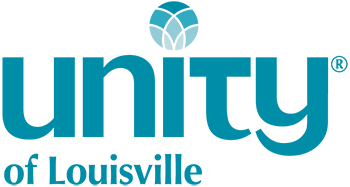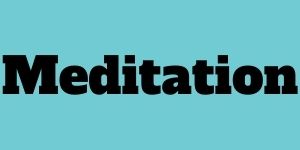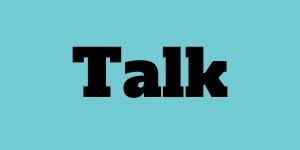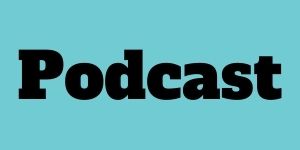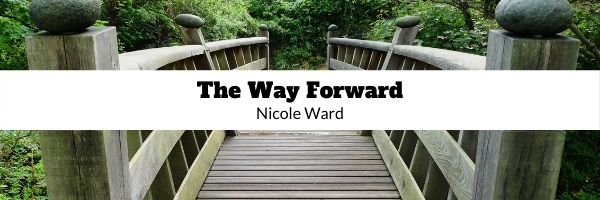
It feels good to be home. It feels good to be in this space that we're in. I remember being a part of conversations about when we were going to be able to get back in church and get back to normal. I remember thinking within myself that we need to slow down, we're moving too fast. When I think about the things that have happened over the past year and a half, in a place where it's still so close, it's hard to really see the perspective of it all. I imagine that when I see something up close, it's hard to really focus in on, but when it's moved back it's a different perspective. I believe as time goes on that I'll have different perspectives of this time. This COVID time, this civil rights movement time, this Black Lives Matter time. Things will shift and change within me. I'm certain. Val and I were talking this morning and she mentioned something that we all know, we all have recognized that church is changing. Church has been changing for a really long time. Some of us have been dragging our heels and not wanting to change and evolve and shift.
As someone that lives in the same culture and also in a different culture, I know that things have to constantly evolve and I constantly have to shift and change. I have to assess safety for myself, as a person who identifies as being female, as a person who identifies as black. I know that changes is constant. In every situation I go in and I assess, I do an inventory. So I want us to be able to hold space for us being together and also hold space for all the changes that have happened, where we are today in this space that many of us call home and feels sacred and safe to us. I've titled my talk today WISH and wish is an acronym that I've created that stands for wisdom, inventory, self, and habitat.
When I think about habitat, I think about ecology. When I think about ecology, I think about the benefits of diversity and ecology, because we have to have a diverse ecology in order for the ecology to survive. In order for the community to survive, in order for the community to live, there has to be diversity in our habitat. When I think about habitat, I think about habitat and community. I think about habitat in church. I think about habitat in the world.
I have this wish and I want you all to just conceptualize "wish." The first time you heard this idea of wish and what wish means to you. I can say the first time that I remember wishing was with my older brother Desi. Our grandfather had given us a wishbone out of a turkey that he had made for Thanksgiving in his house on Cedar Grove Court in Portland. I don't know if you all are familiar with Cedar Grove Court, in Portland, but my grandparents lived in this little mini mansion, back in the day when Black folks didn't live in Portland. My grandfather gave us this wishbone and we pulled in and we broke it. Whoever gets the biggest piece, you all know that thing. The other things I remember about wishing are at birthday parties, making a wish and blowing out the candles. You close your eyes and you do this thing, and you wish for this thing to happen. We have to believe that the wish will come true. If we didn't we'd be like "I'm not making a wish this year. I don't want your wishbone take it away." Or when you get the dandelion that people call weeds, but we know all the many purposes of the day and the lines and that they're edible, and we can make tea out of the roots and we can blow on those little seeds and we can make a wish. If an eyelash falls out, we take it and we put it on our finger and we blow them. We make a wish. When we see the cardinal bird that is our state bird we make a wish.
When I think about this word, "wish" I think about the wisdom in that the lore in that, that has traveled through the inventory in that, because typically we're wishing for something ,that we don't have or something that we want more of, and the self in that, because we're creating this wish possibly for others, but it comes from internally. It comes from ourself and we're in this space where we're making this wish on this thing that grew out of the ground, or this thing that grew out of our eyelid, or this cake that somebody prepared and these candles that somebody made out of this wax with this wick in it, it just didn't just pop up. There was this process before we made this wish and this environment of the things that we wanted. It takes this curiosity to make a wish. It takes this courage to make a wish. When we wish for something, it may be for ourselves, but it also impacts other people. That's the ecology of it.
So in the inventory of our lives and the inventory of where we are right now today, I think about the things that I'm going to keep and the things that I'm going to get rid of. Some of the things are things that I think that I need.
Over this civil rights period of time that we're in, that we've experienced, that we've experienced before, I've thought about what I needed, what I don't need, when I need to go outside, when I need to come in, when I need to do a Clicklist, when I'm going to go in the grocery store. It's all very delicate in how we move through this time, but we take these inventories. In this wish, I would encourage you to use wisdom and to use your self-inventory, to reflect on what is in the habitat, take credit for what is yours, for the things that aren't yours not to take credit for. Growing up, I remember hearing the term my bad. This is my stuff. This is my baggage. It belongs to me. Sometimes people would say your bad, but sometimes it might not even be your bad. It might be somebody else's bad, but also the inventory of what's mine, what's not mine. What do I want to keep? What do I want to get rid of and using the wisdom to decide?
When I was a kid, there was a woman who lived in Louisville that I don't hear very many people talk about, but I woke up with her on my mind this morning. And her name was Mother Morgan. So Mother Morgan was a beautician in Louisville. She had various shops in the west end and she made hair grease. My mother used to send me to her to get my hair fixed. My brother used to have her grease and used to sell it. Before recycling was super cool in Louisville, and there were these orange containers, now we have these new blue containers Before all the recycling Mother Morgan used to get baby food jars, and she would put her grease in the baby food jars. She would put a label on the jar and she would put the lid on the jar. There used to be really tiny baby food jars, medium baby food jars, and big baby food jars. My brother would sell her grease. Mother Morgan has now passed on, but I saw her from probably when I was about 10 years old until I was about 17 or 18. Then I used to still go and visit her in her house.
So Mother Morgan one time said to me, when I was about 11 years old, she said, "You're a wise one." No one in my family had ever given me that type of compliment. Mother Morgan just didn't tell me that. I think at some point she told my mom that because my mom brought it up to me when I was about 17 years old. So she told me at 12, my mom told me at about 17 years old. So my mom had heard this from this very wise woman, this black woman, this entrepreneur, her hair grease is still sold today. She has been dead for a really long time. The significance of her telling me that shifted me. That was part of the inventory and the wisdom and the self and this ecology of who this diverse woman was to me, that was older, that she gave me that propelled me just in life.
Whenever I would make a stupid decision because I did, and I still do, I would think Mother Morgan had said I was wise. She said, I have wisdom. I held on and I hold on to that. In holding on to that, I'm able to share that story with you all today. Many of you that probably don't even know it. There's nothing on the side of the buildings downtown that represent people that are from Louisville that says anything about Mother Morgan. But if you Google her or her grease, that's not in a baby food jar, her image is on there with a big fancy hat and her smiling in this way that she would smile.
SoI think about what is mine and what is other people's. What is my inventory? I take inventory of myself, I have to do that often. I would encourage that we all do often. In this time of confusion and uncertainty and change and of recalibration and of people feeling, however they feel about, if you wear a mask, if you don't wear a mask anymore, let me hug you, I don't want to hug you, let's hold hands, let's fist bump. All these changes that are happening that are stretching us to be more than what we've ever been before. I've never lived through a pandemic. I've heard of crisis. I've heard of epidemics. I've never lived through anything like this. Right now it's still so close. I don't know what the impact is going to be, but I know that I'm grieving. I also know that I'm celebrating and I'm wishing for a lot of good stuff to happen.
I know that I never want to go back to the way things were. When I hear people say, "We need to go back to normal, we need to go back to the way things were," who was benefiting there, getting back to the way things were? I know that sometimes we have to be still. And so I listened to this contemporary Christian song that I listened to when I was younger and it was "Be still and know that he is, God." I don't know if I think God is a he anymore, I could go on and on and on for that dogma. But be still and know that God is God and we're created in the image of God. Us being still and knowing who we are and exercising our higher purpose. We're using our wisdom, we're taking this inventory of self, and we're acknowledging the entire habitat.
In the 1800s, Charles Seldin created this book, and in this book, there was this list of what would Jesus do. I know some of us remember this in the nineties with the arm bands and stuff like that. But before the arm bands there was this book about "What Would Jesus Do?" I remember other people have these arm bands around and they were questioning, what would Jesus do in a situation? Those statements, that question of what would Jesus do, that was wisdom. Like, let me reflect, let me use my wisdom. Let me do an inventory. Let me remember some of these parables. Let me think back on some of this stuff and be in myself and then reflect it back out to the habitat so that I could probably be a better human.
This wish is to be a better human, to be wise, to inventory. You look at self and reflect on self and reflect on habitat. We all have a history that's connected to this church. Even if it began today, and this is your first time here, we all have this history. Often some people want to forget about certain history or certain people's history and embrace other people's history, but it's all our history. It's our stuff. It's the stuff that we need to remember so that we can reflect, so that we can remember how uncomfortable people felt and some of the chaos that was created and the fear that was created in the church. The people are gone for the most part, but where did they go?
I wish them fulfillment and I wish them happiness. I wish them resources, and I wish them to be valued. I wish for ones that are alive for people to walk by and wave at them and smile at them, or send them positive energy or say under their breath that I love you and that you are created by the same creator that created me. I have this wish for you. Not that you just go away and I don't see you, but that I see you. And so when we truly live these principles that are us, that are Unity, that we're unified and that we are together. We know that we can't go back and we know that some of us like me, aren't really ready to move too much forward.
I thought about this Palm Pilot that I had, I'm telling you, I'm waxing nostalgic today. I thought about this Palm Pilot that I had. And I don't know if you all remember, but it used to have to calibrate, the target had to be in the middle. I remember sometimes I used to try to cheat and hold it in my hand and it wouldn't calibrate. You had to lay it down flat for it to recalibrate, and then you could use it again. I think that I'm at that point in my life with my being still and knowing that God is God, I'm not really ready to take off my mask and run through the streets and hug the people. In those kinds of things, I just need to be laid flat and to recalibrate and do the self-inventory of where I am and where I need to heal and how I need to be going forward in my life. I think about Yana Vanzants, and I, and I thought about this quote that she says "It is time for you to move realizing that the thing that you are seeking is also seeking you so well." Whether I'm laying here and I'm recalibrating, I know that that thing that I'm seeking is also finding its way to me. I have this wish for you that the thing that you are seeking, that you know, that it's also seeking you.
